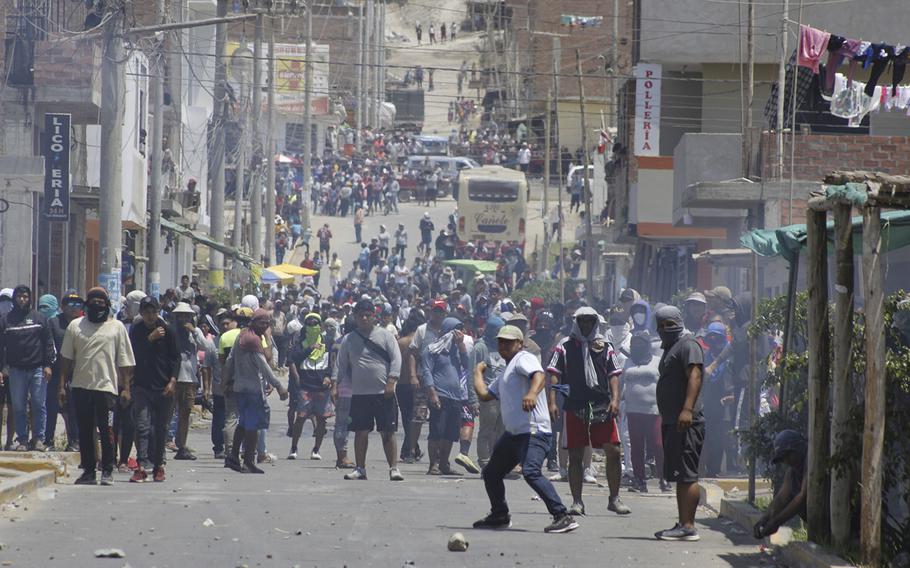
Demonstrators block Avenida Las Flores during protests in Trujillo, Peru, on Dec. 15, 2022. (Arturo Gutarra Chavez/Bloomberg )
Peru imposed curfew orders in parts of the country to try to contain violent demonstrations as clashes between protesters and police in the southern city of Ayacucho left seven people dead and more than 50 injured.
The latest fatalities mean the overall death toll from a week of protests doubled overnight to at least 14 as supporters of the impeached left wing President Pedro Castillo show no signs of giving up their demands.
Dina Boluarte, who was Castillo's running mate and was sworn-in as president on Dec. 7, has failed to quell the anger despite a proposal to hold early elections. Peru's long-running political instability is reaching a boiling point as no elected leader since 2016 has been able to complete the five-year presidential term. Boluarte is the sixth president since then.
"In a sad day of violence, we again lament the death of Peruvians," Boluarte wrote on Twitter. "I reiterate my call for peace."
Castillo was quickly impeached last week after attempting to dissolve congress and govern by decree. He was intercepted on his way to seek asylum in the Mexican Embassy in Lima and has now been ordered to be detained for the next 18 months by a judge.
Protesters are demanding his release and early elections, with some also calling for a constitutional convention to write a new charter. Castillo is being held at a Lima police facility were former President Alberto Fujimori is also serving time.
Peru's fragmented unicameral congress meanwhile resumed a debate Friday on when and how to hold early elections as a way out of the crisis. The normal presidential period would end in 2026, but a vote could be held late next year or in 2024.
During Thursday's congressional debate, several lawmakers and electoral experts said that accelerated elections would make it impossible to reform the political system, paving the way for the crisis to continue.
"We see a high probability of a repeat of the musical chairs that followed the removal of Pedro Kuczynski" in 2018, BancTrust & Co. Senior Economist Cesar Alexander Petit and Ramiro Blazquez, head of research and strategy, said in a report.
"The marginal effect these protests are having on economic activity" moved the central bank to slightly reduce its growth outlook for both this year and next to 2.9% on the year from the previous 3%, central bank President Julio Velarde said in a streamed press conference. Cancellations are hurting the country's tourism industry.
That will still leave Peru as one of Latin America's fastest growing economies next year, assuming the unrest ends in the near term, even though ratings agencies have begun to worry about the outlook, Velarde added.